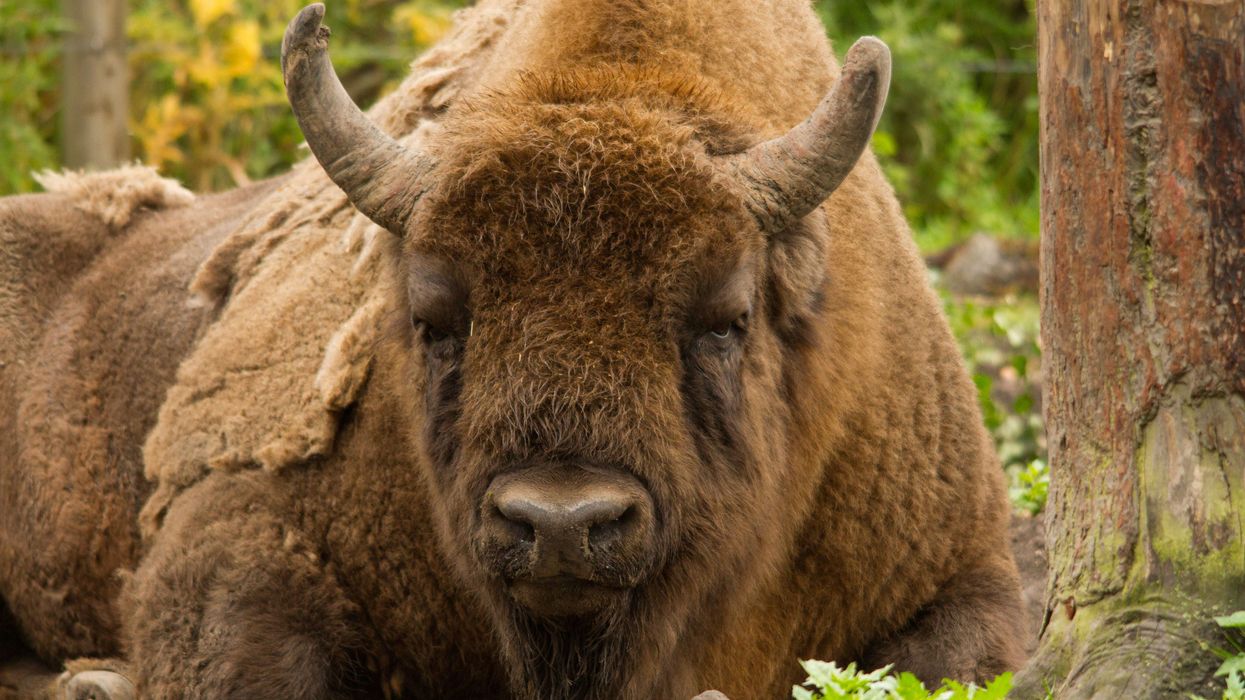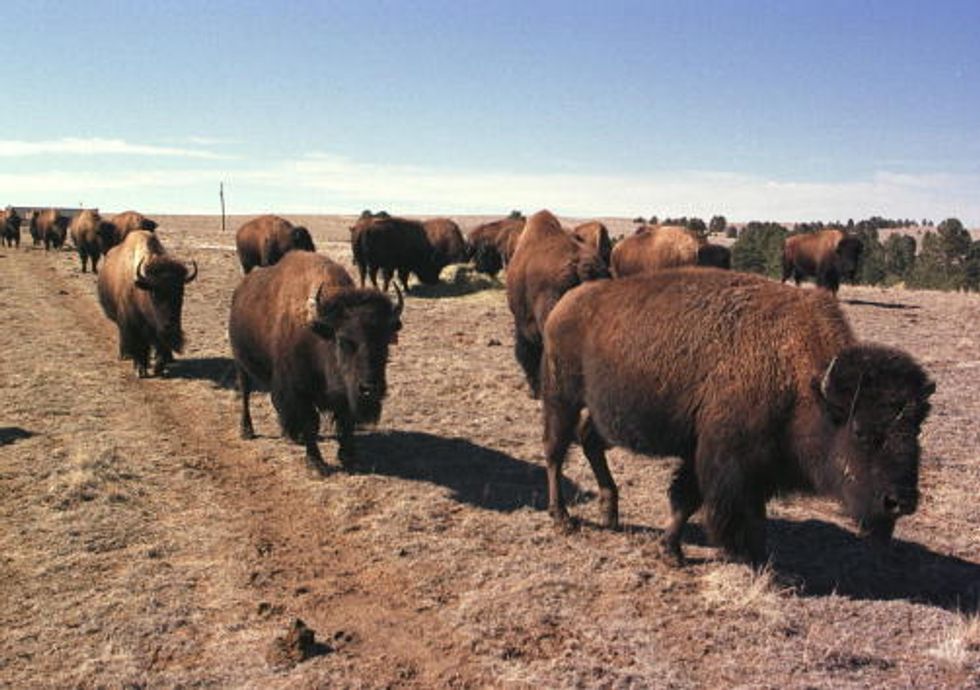
Denver City Council has voted to donate 14 bison to the Arapaho and Cheyenne nations - to honour those who lived and care for the land long before colonization.
Bison and Indigenous people lived in harmony together for many years on the Great Plains before colonization. The bison was revered as a sacred and integral part of the livelihoods of the tribes there. They were used for clothing, food, shelter, and spiritual strength.
But with the turn of the 20th century, the millions of bison that roamed the Great Plains plummeted to less than 1,000. Additionally, the destruction of the herds of bison was a deliberate attack on the Native American people, who many colonizers believed to be a roadblock in their “Manifest Destiny” ideology.
The United States government also partook in an attempt to force them into submission. This nearly led tribes to be wiped out because they were connected to the bison in everyday life.
Through numerous conservation efforts today, bison numbers have significantly increased. However, governments are still coming to terms with the horrific legacy, and some municipalities are taking the initiative to repair some of the damage.
For example, the city of Denver, Colorado. Denver Parks and Recreation has taken steps to give some of the city’s bison population to Native American tribes engaged in bison conservation efforts.
In a 13 - 0 vote on Monday, Denver City Council approved the donation of 14 bison. 13 will be given to the Arapaho and Cheyenne nations in Oklahoma ( around half of which are pregnant). One bison will be given to Tall Bull Memorial Council in Colorado.
Read More
- TikTok user reveals ‘dirty’ meaning behind ‘Macarena’ and people’s childhoods are ruined
- Orlando Bloom’s reply to fiancée Katy Perry nails the banality of long-term relationships
- Reddit just realized that Jerry Seinfeld’s TV apartment defies the laws of science
- Woman arrested for refusing to return $1.2million deposited in her bank account by mistake
- 20 jokes only very intelligent people will understand
Denver Parks and Recreation will also cease their annual auction to keep bison herds at healthy population sizes, ensuring genetic diversity. They will now work with tribal partners through the year 2030 to give surplus bison to Native American tribes throughout the country, further enhancing the conservation herds on sacred tribal lands
In a report from 9 News, Cheyenne and Arapaho Tribes Governor Reggie Wassana spoke about the donation and the importance of this donation to the tribes. "This donation is the result and culmination of a very long, storied history and relationship with the State of Colorado,” he said.

“The Tribes plan to use the donated bison as a cultural, conservation, and educational resource, with the goal of locating the bison on our own tribal natural plains habitat,” he continued.
Denver Councilwoman Pro Tem Jamie Torres also spoke with 9 News, saying that she was “honored to carry the ordinance forward.
"This is a unique opportunity to not only return the bison to tribes across the country and support their conservation efforts but to honor those who have cared for these ancestral lands before us," she said.
The land acknowledgment is read at each city council meeting following the Pledge of Allegiance and reads in part as the following:
"We honor Elders past, present, and future, and those who have stewarded this land throughout generations. We also recognize that government, academic and cultural institutions were founded upon and continue to enact exclusions and erasures of Indigenous Peoples.”
Nathan Hart, the executive director of the Cheyenne and Arapaho Tribes’ business department who oversees the tribes 530 buffalo, spoke to NPR about the city’s donation and how helpful this is for tribes embarking on the goal of sustaining a herd of 800.
"The bison was very significant to our well-being in the past — we have still have a lot of respect for the animal."
He also gives credit to the bison for the tribes’ relationship building with Denver officials.
“That’s what brought us together ... it all came from the bison themselves."
How heartwarming. Here’s to seeing continued conservation efforts for Indigenous tribes in the near future.













